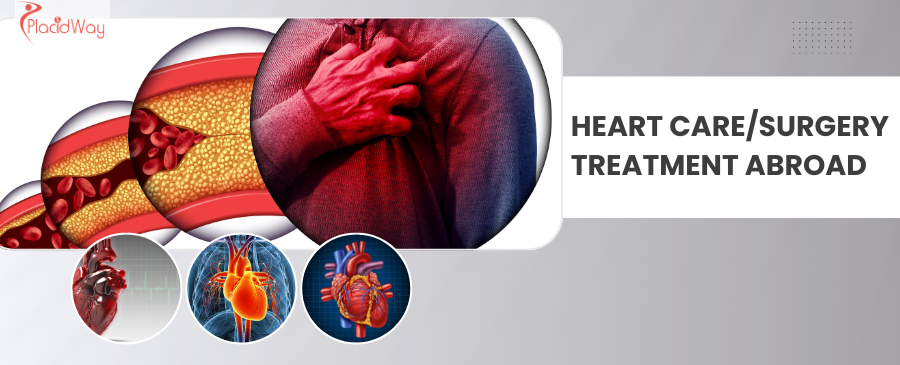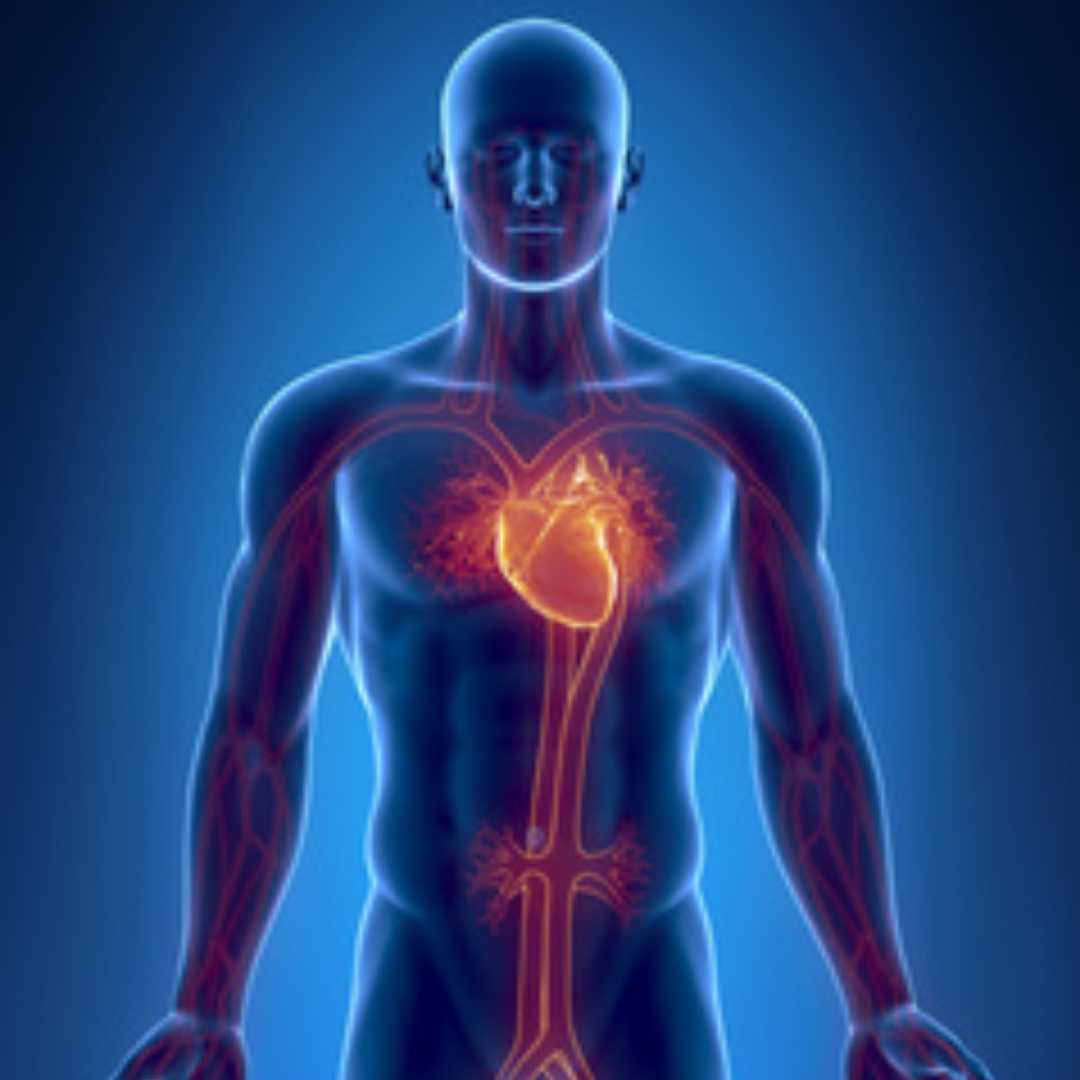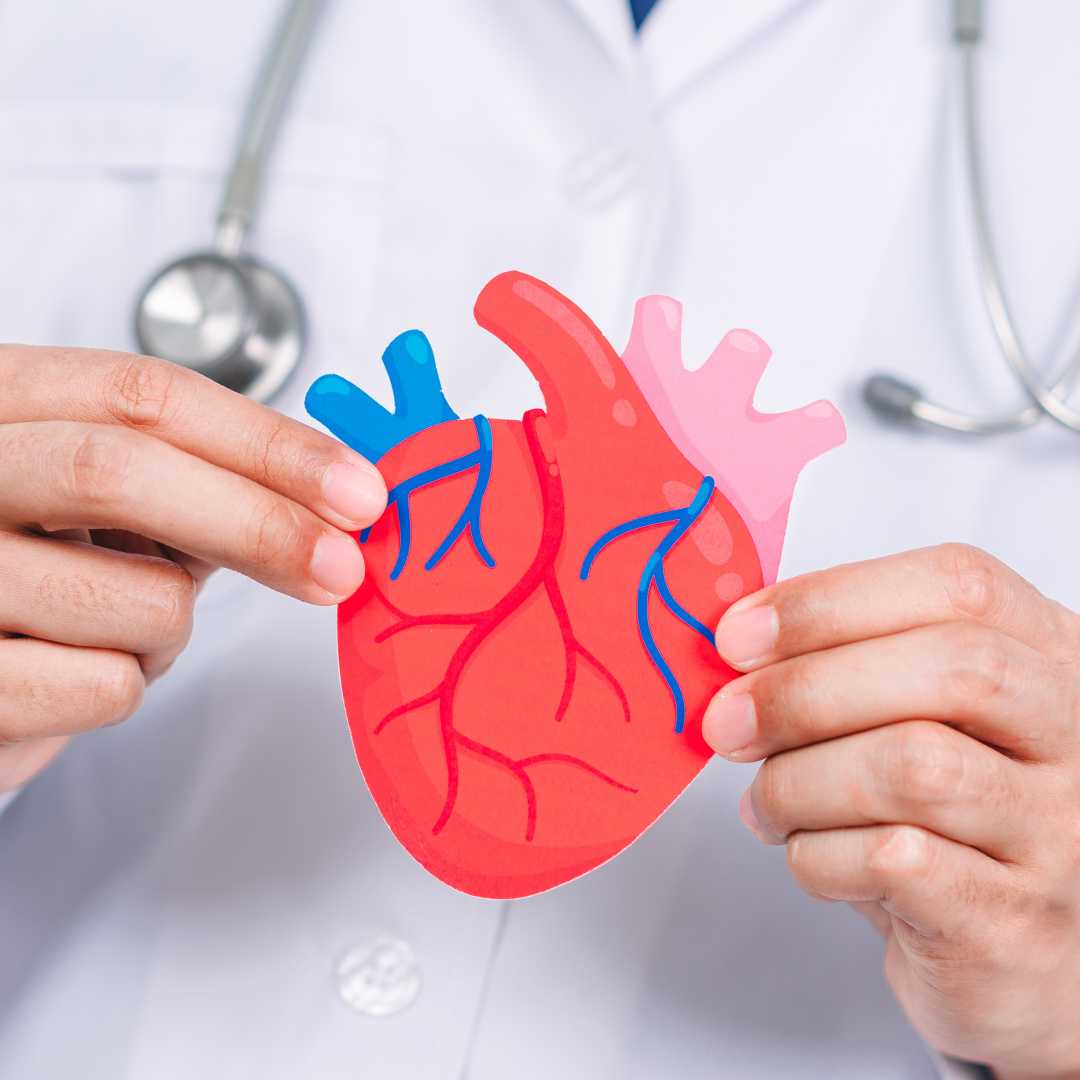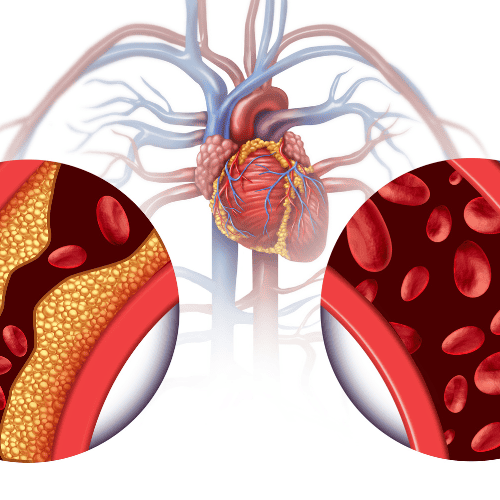
Affordable Heart Care Abroad - Your Guide to International Treatment
Facing a heart condition can be one of life's most daunting challenges, often accompanied by concerns about the best possible care, long waiting lists, and escalating treatment costs. For many, these worries can feel as heavy as the diagnosis itself. But what if there was a way to access world-class heart care, delivered by expert cardiac specialists, without the financial strain or prolonged delays? This is where heart care medical tourism steps in, offering a beacon of hope for patients worldwide.
Medical tourism for heart care involves traveling to another country to receive cardiac treatments or surgeries. This growing trend isn't just about saving money; it’s about gaining access to cutting-edge facilities, highly skilled surgeons, and personalized attention that might be scarce or prohibitively expensive at home. Whether you're seeking a routine cardiac evaluation, a complex bypass surgery, or advanced electrophysiology, international hospitals are increasingly providing solutions that prioritize both quality and affordability.
Imagine receiving life-saving cardiac treatment in a renowned hospital, followed by a recovery period in a serene environment, all while potentially saving tens of thousands of dollars. This guide will walk you through everything you need to know about navigating heart care medical tourism, from understanding the available procedures and comparing costs to choosing the right destination and ensuring a smooth journey. Our goal is to empower you with information, helping you make informed decisions about your heart health and explore the vast possibilities beyond your borders for exceptional cardiac treatment.
What is Heart Care Medical Tourism?
Heart care medical tourism is the practice of seeking specialized cardiac treatment outside one's home country. Patients choose this option for various reasons, most notably to bypass long wait times for critical procedures, access advanced medical technologies not available domestically, or significantly reduce the financial burden of high-cost treatments. It's a global phenomenon that connects patients with world-renowned cardiologists and state-of-the-art facilities across borders.
This journey typically begins with a patient identifying a need for cardiac intervention, researching potential destinations and clinics, and then coordinating their travel and treatment plans. It encompasses a wide range of services, including diagnostic tests, non-invasive procedures, and major open-heart surgeries. The appeal lies in the ability to combine top-tier medical care with the opportunity to recover in a new, often more relaxed, environment.
Why Choose Medical Tourism for Heart Care?
The primary driver for many patients considering heart care abroad is the dramatic difference in cost. Procedures that can cost hundreds of thousands in Western countries might be available for a fraction of that price in destinations like India, Turkey, or Mexico, without compromising on quality. Beyond cost, medical tourism offers quicker access to specialists and procedures, which can be critical for heart conditions where delays can worsen outcomes.
Furthermore, international medical centers often boast cutting-edge technology and highly experienced cardiac surgeons who perform a high volume of complex cases. Patients often report receiving more personalized attention and a more holistic care experience in these facilities. The ability to combine recovery with a vacation-like atmosphere can also contribute positively to a patient's mental and physical well-being.
What are the Most Common Heart Care Procedures Available Through Medical Tourism?
International hospitals offer a comprehensive array of cardiac services, ensuring that most heart conditions can be addressed. These procedures are performed by highly qualified cardiologists and cardiovascular surgeons, utilizing advanced medical equipment and techniques. Here are some of the most frequently sought-after heart care procedures:
- Coronary Artery Bypass Graft (CABG): Often referred to as "bypass surgery," this procedure improves blood flow to the heart by creating new routes around blocked coronary arteries using grafts from other parts of the body. It’s a common solution for severe coronary artery disease.
- Angioplasty and Stenting: This minimally invasive procedure opens narrowed or blocked coronary arteries. A balloon-tipped catheter is inserted and inflated to widen the artery, and a stent (a small mesh tube) is often placed to keep it open, restoring proper blood flow.
- Heart Valve Repair/Replacement: When heart valves become diseased or damaged, they may not open or close properly, affecting blood flow. Surgeons can repair the existing valve or replace it with an artificial (prosthetic) valve or a biological valve made from animal tissue.
- Pacemaker Implantation: For patients with slow or irregular heart rhythms (arrhythmias), a pacemaker is a small device implanted under the skin, usually near the collarbone, to send electrical pulses that help the heart beat at a normal rate.
- Electrophysiology (EP) Studies and Ablation: EP studies diagnose heart rhythm disorders, while ablation is a procedure that uses heat or cold energy to create tiny scars in the heart, blocking abnormal electrical signals and restoring a normal heartbeat.
- Cardiac Rehabilitation: Post-procedure, cardiac rehab programs focus on supervised exercise, education on heart-healthy living, and counseling to help patients recover, improve heart function, and reduce the risk of future heart problems. This is often integrated into the medical tourism package.
Each of these procedures is performed with the utmost precision and care, leveraging the latest advancements in cardiovascular medicine, making international centers a viable and attractive option for patients needing complex heart interventions.
How Does International Heart Care Compare in Quality?
The perception that lower cost equates to lower quality is often a misconception in medical tourism. Many international hospitals specializing in heart care are accredited by globally recognized organizations such as the Joint Commission International (JCI). JCI accreditation signifies that a hospital meets stringent international standards for patient safety and quality of care, comparable to top-tier hospitals in the US.
These facilities often invest heavily in state-of-the-art equipment, employ Western-trained or internationally certified surgeons and medical staff, and adhere to global best practices. For instance, a hospital in Thailand performing CABG might use the exact same technology and follow identical surgical protocols as a leading hospital in Germany, but at a significantly reduced cost due to lower overheads and labor expenses.
What is the Cost of Heart Care Procedures Worldwide?
The cost disparity for heart care procedures across different countries is a major motivator for medical tourism. Factors like labor costs, hospital overheads, insurance systems, and government regulations all contribute to these differences. Below is a comparison table illustrating typical price ranges for common cardiac procedures in various countries. It's important to remember these are estimates and actual costs can vary based on complexity, hospital, and surgeon.
Estimated Cost Comparison for Common Heart Procedures (USD)
| Procedure | USA / UK (Approx.) | India (Approx.) | Turkey (Approx.) | Mexico (Approx.) |
|---|---|---|---|---|
| Coronary Artery Bypass Graft (CABG) | $75,000 - $150,000+ | $5,000 - $12,000 | $10,000 - $25,000 | $15,000 - $35,000 |
| Angioplasty & Stenting (1 stent) | $20,000 - $50,000+ | $3,000 - $7,000 | $5,000 - $10,000 | $7,000 - $15,000 |
| Heart Valve Replacement | $60,000 - $120,000+ | $8,000 - $18,000 | $15,000 - $30,000 | $20,000 - $40,000 |
| Pacemaker Implantation | $20,000 - $60,000+ | $4,000 - $10,000 | $7,000 - $15,000 | $9,000 - $20,000 |
These figures clearly illustrate the substantial savings achievable through medical tourism, making life-saving cardiac care accessible to a broader population.
What are the Eligibility Criteria for Heart Surgery Abroad?
Eligibility for heart surgery abroad is determined on a case-by-case basis by the international medical team. Generally, patients need to be stable enough for international travel and the procedure itself. Key factors considered include the patient's specific heart condition, overall health, age, and presence of other medical conditions (comorbidities) like diabetes or kidney disease.
To assess eligibility, hospitals abroad will require a comprehensive set of current medical records, including:
- Detailed medical history and physician's notes.
- Recent diagnostic reports (ECG, Echocardiogram, Angiogram, CT scans, MRI).
- Blood test results (including coagulation profiles, kidney, and liver function).
- List of current medications and allergies.
- A referral or letter from your local cardiologist outlining the diagnosis and recommended treatment.
The international medical team will review these documents to determine if the patient is a suitable candidate for the proposed procedure and can safely undergo treatment away from home.
What Symptoms Indicate a Need for Cardiac Evaluation?
Recognizing the early warning signs of heart problems is crucial for timely intervention. While some symptoms can be subtle, others are more alarming. If you experience any of the following, it's vital to seek a cardiac evaluation promptly:
- Chest Pain or Discomfort: This can manifest as pressure, tightness, squeezing, or aching in the chest, often radiating to the arms (especially the left), jaw, neck, back, or stomach.
- Shortness of Breath (Dyspnea): Feeling breathless, especially during exertion or when lying down, can be a sign of heart failure or coronary artery disease.
- Fatigue: Unusual or persistent tiredness, even after adequate rest, can indicate a failing heart struggling to pump blood effectively.
- Heart Palpitations: A sensation of a racing heart, fluttering, pounding, or skipped beats, which might be harmless but can also signal an underlying arrhythmia.
- Dizziness or Lightheadedness: Feeling faint or dizzy can be caused by insufficient blood flow to the brain due to heart issues.
- Swelling (Edema): Swelling in the legs, ankles, or feet, often due to fluid retention, can be a symptom of heart failure.
If you experience any concerning symptoms, consult a healthcare professional immediately. Early diagnosis and treatment can significantly improve outcomes for heart conditions.
How Do I Choose the Right Destination and Hospital for Heart Care Abroad?
Selecting the best location and facility is perhaps the most critical step in your medical tourism journey. Start by researching countries renowned for their medical tourism infrastructure and expertise in cardiology, such as India, Turkey, Mexico, Thailand, and Germany. Look for hospitals with international accreditations, particularly JCI, as this indicates a commitment to global standards of care.
Beyond accreditation, delve into the specifics:
- Surgeon Experience: Investigate the cardiac surgeons' qualifications, years of experience, and the volume of specific procedures they perform.
- Technology and Facilities: Ensure the hospital has modern diagnostic and surgical equipment relevant to your procedure.
- Patient Testimonials and Outcomes: Read reviews and, if possible, speak to former patients. Ask for information on success rates and complication rates.
- Language and Cultural Support: Confirm that the hospital offers interpreter services or has English-speaking staff to facilitate clear communication.
- Aftercare and Follow-up: Understand the post-operative care plan and how follow-up will be managed once you return home.
A reputable medical tourism facilitator can significantly aid in this vetting process, providing unbiased information and connections to trusted facilities.
What Should I Consider for Pre-Travel Planning and Logistics for Heart Care?
Once you've chosen a hospital and procedure, meticulous planning is essential. This includes:
- Visa and Passport: Ensure your passport is valid and apply for any necessary medical visas well in advance.
- Accommodation: Research and book accommodation for yourself and any companions, both before and after your hospital stay. Many medical tourism packages include this.
- Transportation: Plan your flights, airport transfers, and local transportation. For cardiac patients, consider direct flights and avoid overly strenuous travel.
- Travel and Medical Insurance: Purchase travel insurance that specifically covers medical emergencies abroad, especially for pre-existing conditions.
- Medical Records: Organize all your medical documents, including test results, physician letters, and medication lists. Keep both physical and digital copies.
- Financials: Ensure you have sufficient funds for the procedure, accommodation, and any unforeseen expenses. Clarify payment methods with the hospital.
- Travel Companion: It is highly recommended to travel with a companion, especially for major heart procedures, to provide support and assistance.
Working with a medical tourism agency like PlacidWay can streamline these logistics, offering support with everything from visa assistance to booking arrangements.
What is the Recovery Process Like After Major Heart Surgery?
The recovery process after major heart surgery, such as CABG or valve replacement, is gradual and requires patience. Immediately after surgery, patients typically spend a few days in the Intensive Care Unit (ICU) for close monitoring, followed by a stay in a regular hospital ward for several more days. During this time, pain management, wound care, and initial mobilization (like sitting up and walking short distances) are critical.
Upon discharge from the hospital, patients will usually need to stay in the medical tourism destination for an additional 1-3 weeks for follow-up appointments and to ensure they are stable enough to fly home. Recovery at home involves:
- Cardiac Rehabilitation: A structured program of supervised exercise, education, and counseling to strengthen the heart and improve overall health.
- Medication Management: Strict adherence to prescribed medications to prevent complications and manage underlying conditions.
- Activity Restrictions: Avoiding heavy lifting and strenuous activities for several weeks to months.
- Wound Care: Keeping surgical incisions clean and dry to prevent infection.
- Lifestyle Changes: Adopting a heart-healthy diet, regular exercise (as advised), quitting smoking, and managing stress are crucial for long-term recovery and preventing recurrence.
Ongoing communication with both the international surgical team and your local doctor is vital throughout the recovery period.
Are There Any Risks Associated with Undergoing Heart Care Abroad?
While the benefits of medical tourism for heart care are significant, it's essential to be aware of potential risks. These can include:
- Communication Barriers: Despite English-speaking staff, subtle nuances in medical communication can be missed without a dedicated interpreter.
- Legal Recourse: In the rare event of complications or malpractice, navigating legal systems in a foreign country can be challenging.
- Follow-up Care: Coordinating long-term follow-up care, medication adjustments, and emergency care once you return home can be complex. Ensure you have a local physician willing to take over your care.
- Travel Complications: Prolonged flights or changes in altitude/pressure can pose risks for cardiac patients, especially soon after surgery.
- Quality Concerns: Not all international clinics are created equal. Thorough research and vetting are crucial to avoid substandard facilities.
- Infection Risk: As with any surgery, there's a risk of infection, and navigating this in a foreign environment can add stress.
Mitigating these risks involves choosing internationally accredited hospitals, using reputable medical tourism facilitators, and having a clear plan for post-operative care at home.
How Can PlacidWay Assist with My Heart Care Medical Journey?
Navigating the complexities of heart care medical tourism can be overwhelming, but PlacidWay is here to simplify the process. As a leading medical tourism facilitator, PlacidWay acts as your trusted guide, connecting you with a global network of accredited hospitals and highly experienced cardiac specialists. We understand the critical nature of heart conditions and the importance of finding the right care quickly and affordably.
Our services include:
- Clinic and Doctor Matching: We help you find internationally accredited cardiac centers and experienced surgeons tailored to your specific heart condition and needs.
- Transparent Cost Estimates: Get clear, upfront pricing for various procedures, allowing you to compare options and plan your budget effectively.
- Logistical Support: Assistance with travel arrangements, accommodation, visa information, and local transportation to ensure a smooth and stress-free journey.
- Medical Records Facilitation: We help organize and securely transmit your medical records to international specialists for evaluation.
- Personalized Guidance: Our patient care team provides continuous support, answering your questions and addressing concerns at every step, from initial inquiry to post-treatment follow-up.
With PlacidWay, you gain a partner dedicated to making your heart care medical tourism experience as safe, effective, and comfortable as possible.
Take the Next Step with PlacidWay
Ready to explore world-class heart care at an affordable cost? Your journey to better heart health is just a click away. Explore top-rated international cardiac clinics, compare prices, and get a free, personalized quote for your heart treatment with PlacidWay. Let us help you plan a seamless and life-saving medical travel experience. Start your transformation today!










Share this listing